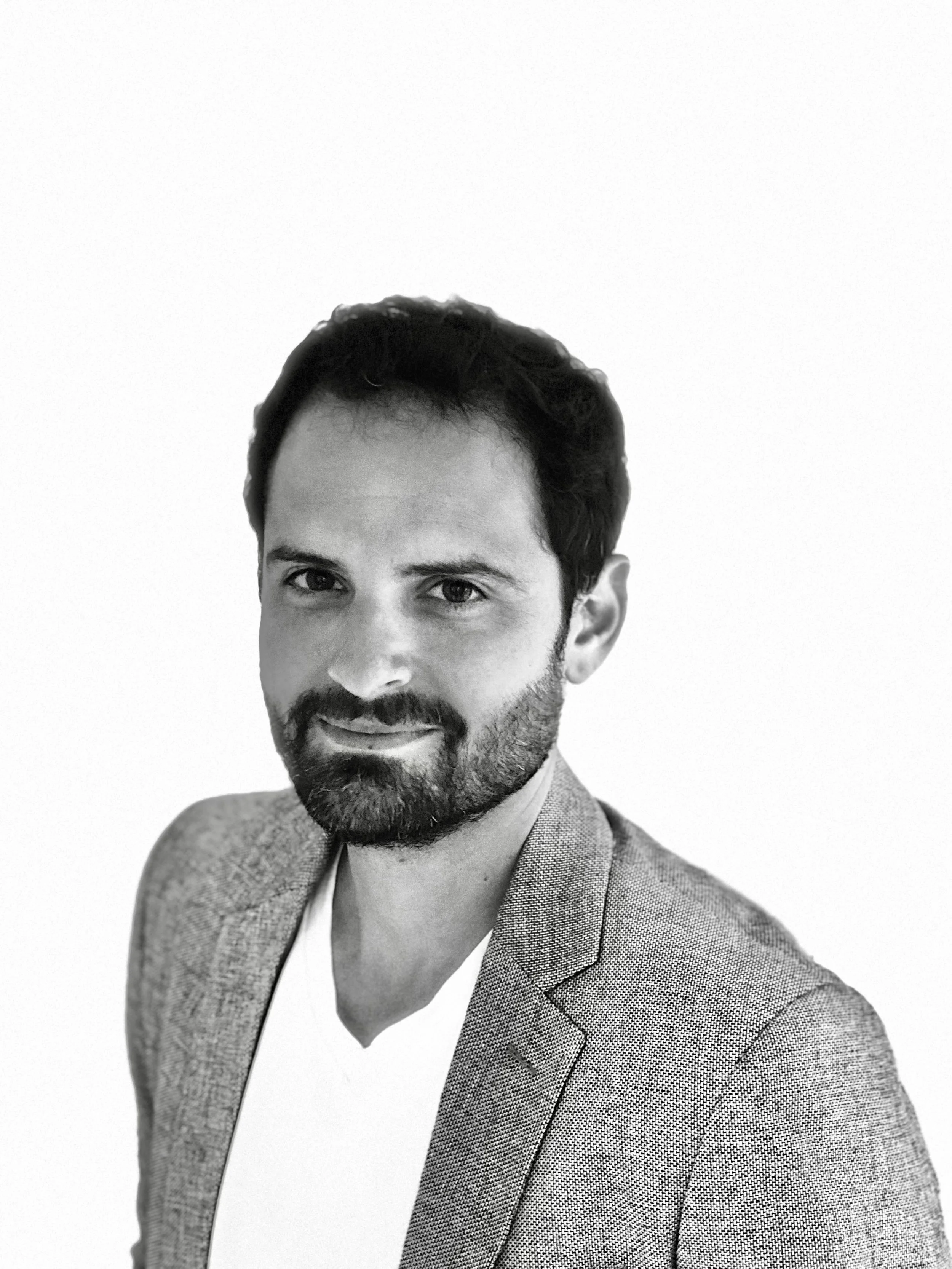Beyond ‘male privilege’. An interview with Rick Bradford (aka Will Collins), author of The Empathy Gap.
One of the foremost authorities anywhere in the world on men’s issues is Dr Rick Bradford. Having enjoyed a successful career in physics and engineering, he has become increasingly drawn to investigating men’s issues in recent decades, and has gained much respect for his insightful blogging and his encyclopaedic book on issues facing men, The Empathy Gap. Compared to his career in industry, there is no material benefit to him in exploring men’s disadvantages, especially given than some people argue that men are privileged rather than disadvantaged. So what motivates a man like Rick Bradford to root for the kind of underdog that many people presume is the top dog?
John Barry (JB): Your background is in physics and engineering. How did you get interested in men’s issues?
Rick Bradford (RB): It was a growing realisation which started in my earliest adult years and gradually became more focussed as I got older. Perhaps it was something to do with being raised with three older sisters (age gap 4, 6 and 7 years). In the domestic power rankings I came after the cat. I wasn’t naturally inclined towards the oppression narrative.
Or perhaps, later on, it was something to do with having The Guardian hanging around at home, so I could not avoid noticing the skew in many articles. But, if so, why did it bother me and not other people? I really don’t know. But bother me it obviously did because when Neil Lyndon’s book (No More Sex War) came out in 1992 I was on it immediately – ditto the following year with David Thomas’s book (Not Guilty).
The final straw, and the reason for my starting blogging, was Diane Abbott. She was enjoying a round of interviews following a lecture she gave in May 2013, The Crisis in Masculinity. The burden of the talk was that men (all of us, it would seem) were failure-to-launch, porn addicted, Viagra crunching, Jack Daniels swilling, homophobic misogynists, living in a hypermasculine culture akin to the film Fight Club which promoted a “celebration of heartlessness” and “a lack of respect for women's autonomy”.
It was hardly new. It could have been anything or anybody. But that was the final straw.
I was itching for some interviewer to challenge Abbott in some way. Any data, at all? What men was she talking about, for instance? Me? I was sick of listening, for decades now, to this sort of openly bigoted garbage without anyone daring to challenge it. I’d lived almost my whole working life with these generalised accusations and I’d never deserved any of it.
“Why use a pseudonym? Fear. It’s not a good look, a pseudonym, is it? I’m painfully aware of that. But it says something about where the power lies. …There is a reason why men who speak up on these issues tend to be retired or unemployed.“
JB: Does having a background in science change the way you approach men’s issues?
RB: I wouldn’t over-emphasise the importance of my physics/engineering background. However, those subjects are strongly correlated with the far end of the male brain spectrum. I think that does promote an attitude of doubting and “show me the evidence” which is relevant to seeing through those popular narratives which gain general acceptance only through repetition. Also, my background means I have a greater than average facility with data and analysis. Consequently it was natural for my blogging to focus heavily on data. The attitude I adopted from the start was to find quantitative support, or refutations, for claims made in the gender field. I honestly set about asking myself what I really knew, as opposed from assumed, about the key issues. It was to prove a fruitful approach as many shibboleths crumbled at the first challenge.
JB: Why did you write under a pseudonym, and why did you choose Will Collins?
RB: That will be the Reverend William Collins, if you please. The name is from Pride & Prejudice (I’m an Austen fan). He was the socially inept vicar whom all the ladies despised. It seemed appropriate.
Why use a pseudonym? Fear.
It’s not a good look, a pseudonym, is it? I’m painfully aware of that. But it says something about where the power lies.
When I started blogging I was still employed in a large corporation that was, and is, as woke as the rest. And a couple of years later I had a paid position in a university – so the same constraint on being too open applied again.
Now I’m stuck with the pen name as the few people that have heard of me know me by that name. However, my rule has always been that in videos, or in public appearances, I use both names. I no longer have paid employment anywhere. There is a reason why men who speak up on these issues tend to be retired or unemployed.
“men need to have something to offer women in order to be successful in the mating stakes. …This is what lies behind men tending to shy away from activities in which women predominate. Inevitably this has been interpreted [as misogyny]. But it isn’t, of course. It’s simply that men know instinctively that they need to concentrate upon activities which complement women’s roles, rather than activities in which they will compete with them”.
JB: How long have you been involved in men’s issues, and how have things changed in this field during this time?
RB: I started blogging in spring 2013. My first book, The Empathy Gap, came out in July 2019.
It would be easy to make the mistake of thinking men’s issues have become a more acceptable area of discourse over the last nine years, but this might be because we operate within a very small bubble. Where it matters – in Government, education, academia, the arts, and the entertainment and corporate worlds – things are on a one-way ratchet. Lip service may be paid now and then, but in policy and legislation there continues to be a monopoly on sympathy and concern for just one sex. Most men, including myself, would be quite content to tolerate even very high levels of disadvantage if that were compensated by commensurate respect. But it is the withdrawal of all respect for men and its replacement with bottomless vilification that renders the situation of men now entirely unacceptable.
That is not to say that the achievements of certain tireless people (not least the Centre for Male Psychology and the BPS Male Psychology Section) in promoting a more balanced perspective on these issues is not welcome or worthwhile – far from it. This is essential to make any progress at all. But one must be realistic about the short-term prognosis.
Picture: The Empathy Gap Book
JB: In your research / discussions of men’s issues, what is the most surprising thing you have found?
RB: I have learnt many things over the last nine years, or, at least, many things have crystallised for me. Here are three…
The reality, depth and universality of the empathy gap towards males (by both sexes) is shocking. It’s not surprising that most men are in denial about it: it’s a horrible truth to face.
It continues to surprise me that most people seem not to be aware of how uncomfortable men feel when subject to female disapproval. The origin of this is, I suspect, the ceding of moral authority from man to woman in the pair bond. Being disapproved of by a moral authority is bound to be discomforting. But – unless this is simply my ignorance – the ceding of moral authority as an aspect of the human pair bond seems also to lack widespread appreciation.
A key aspect of male psychology is complementarity. Take the anthropological perspective. Women have magical powers to bring forth new life and to produce milk to nurture the baby. This presents a major challenge to men’s sense of significance. And yet men need to have something to offer women in order to be successful in the mating stakes. It must be something which women are less able to provide for themselves, or it would have little value for them. This is what lies behind men tending to shy away from activities in which women predominate. Inevitably this has been interpreted in the pejorative, as misogyny (as if the association with women devalues the activity). But it isn’t, of course. It’s simply that men know instinctively that they need to concentrate upon activities which complement women’s roles, rather than activities in which they will compete with them. Thus, a male disadvantage became repackaged as their own fault, a pattern that is repeated over and over with all male disadvantages.
Those three phenomena are all of evolutionary origin, though they can be, and have been, deepened by cultural forces. Between them they explain a great deal about gender relations.
“The exercise to ask MPs if they were feminists, with cameras rolling, showed that overwhelmingly they said ‘yes’, or, at least, strained very hard to avoid saying ‘no’. In contrast, there is no MP who would profess to be an MRA”
JB: What are the similarities and differences between the women’s rights movement and the men’s rights movement?
RB: I suspect the extremely adverse reaction which some people have to “men’s rights” is because they misinterpret the term as meaning “conjugal rights”! Heaven help us, that doesn’t come into it. Actually, I’m rather uncomfortable with talk of “rights”, but let that pass.
Some people who are not enamoured with feminism think that the men’s human rights movement (MHRM) is just its mirror image and hence just as bad. But the idea that feminism and the MHRM are symmetrically equivalent is wildly preposterous. Feminism is an aspect of the establishment, in the same way that Christianity was an aspect of the establishment in the Victorian era. The exercise to ask MPs if they were feminists, with cameras rolling, showed that overwhelmingly they said ‘yes’, or, at least, strained very hard to avoid saying ‘no’. In contrast, there is no MP who would profess to be an MRA – not even Philip Davies, I suspect. The MHRM is not even within the Overton Window. So the difference is one of power. Feminism is an extremely influential lobby, nationally and internationally. The MHRM is vilified and beyond the pale.
The ideological core of feminism is patriarchy theory, which posits the organised oppression of women by men. The MHRM does not deploy an oppression narrative, though its detractors seem to believe it does. There is no authorised set of ideas which defines the MHRM. However, the bulk of MRAs do not identify the male disadvantages as having been caused by feminism, in contrast to what detractors seem to believe. Rather it is evolution which is identified as the primary origin of male disadvantages, as my answer to the previous question demonstrates. The question is, to what degree have some feminists traded upon, and exacerbated, these innate tendencies. A truly egalitarian movement would have recognised the empathy gap, for example, and set about countering it – rather than amplifying it and using it to their advantage.
“It may not be possible to overcome the empathy gap, and it may not be sociologically desirable to do so anyway. It evolved for a reason. […] Most men would be happy sucking-up the disadvantages in exchange for some respect. It is the disdain for men which is catastrophic.”
JB: What do you think of the term ‘masculinities’?
RB: It has no meaning, does it?
A term is defined by its measurement procedure. There are a number of tests for masculinity / femininity. Leaving aside there is no agreed standard (is there?), one could in principle be chosen. There would be a distribution of traits for men and for women – and, we assume, for large representative groups these would have different means and medians for men and women, otherwise the terms “masculine” and “feminine” would be inappropriate.
Where does the plural “masculinities” come into this? It doesn’t. The property (construct?) “masculine” is distributed, like everything else, so it is normal that a small proportion of men will score high on masculinity and a small proportion of other men will score low on masculinity. It’s not so much a case of lots of different categories of masculinity.
JB: What has the reaction to your book The Empathy Gap been like?
RB: To my face, 100% positive – but then it would be. Reviews on Amazon: 28 ratings all 5 stars. However, I doubt that those who would be most inclined to be critical have read it. When it was offered to Routledge, on the basis of the first half dozen chapters, three out of four reviewers gave it the thumbs down. But you can probably guess why that might be. Whilst I’m not exactly in the Douglas Murray league, The Empathy Gap continues to sell at the same steady slow rate as when it first came out three years ago, which is encouraging.
JB: What is the key thing that might help people overcome their empathy gap?
RB: Empirical knowledge, understanding and compassion. And being willing. There are none so deaf as those that will not hear.
It may not be possible to overcome the empathy gap, and it may not be sociologically desirable to do so anyway. It evolved for a reason. What’s lacking is recognition of men’s contribution, and the re-establishment of respect for men. Most men would be happy sucking-up the disadvantages in exchange for some respect. It is the disdain for men which is catastrophic.
“the infantilisation of moral issues promoted by Destructivism provides a means by which elites can control us behind a façade of loveliness.”
JB: Your new book The Destructivists offers a grand-unified theory of the various strands that make up one side of the culture war. Can you tell us a bit more about this book?
RB: The Empathy Gap was mostly a compilation of empirical evidence about gender issues. It was a big book. The Destructivists is not empirical, it is a book of opinion. It is a much smaller book. It takes as read that there is a powerful movement in all “Western” countries which is called, or incorporates, Critical Theory, Social Justice, postmodernism, “woke”, etc., all of which I cover with the umbrella term “Destructivism”. That this term is deserved is demonstrated in the book. However, the main purpose of the book is to propose an answer to the question “why has this Destructivism become so influential; what is its appeal?”. The question is pressing because the ideology appears to non-adherents as completely bonkers. My answer lies in the concept of moral usurpation, which is the main thesis of the book. I argue that moral standing is a tradable asset within a power brokerage system operating within elite groups. The idea explains why politicians and corporations “go woke”, contrary to what one might have expected. Rather than being a mechanism for promoting the interests of the mass of the public, the infantilisation of moral issues promoted by Destructivism provides a means by which elites can control us behind a façade of loveliness.
“in a culture conflict the most intolerant wins. But […] these highly intolerant “winners” end up on the receiving end as an even more intolerant group will inevitably arise […] So the real lesson is that to win is to lose. What must be defeated is not the apparent opponent but the game itself.”
JB: What do you think is the single greatest issue that needs to be addressed to end the culture war, e.g., narrative promoted by social media and mainstream media?
RB: It’s not any specific issue that matters, but the public perception of what is going on. Of course, it would help a great deal if empirical truths were not so misrepresented and the public became more discerning instead of lazily believing what they read or hear on social media or the mainstream media.
Picture: The Destructivists Book
We are being played, and those who benefit are the hyper-elites. The culture war divides – and divide and conquer is the oldest and best trick in the book. Division and moral coercion are the means by which a relatively small number of elites have always benefitted themselves at the expense of the far greater number. In my game theory analysis of identity politics, alluded to in The Destructivists, I demonstrate the truth of what some people have claimed – that in a culture conflict the most intolerant wins. But what I emphasise is that these highly intolerant “winners” end up on the receiving end as an even more intolerant group will inevitably arise (the game is unstable to schism). So the real lesson is that to win is to lose. What must be defeated is not the apparent opponent but the game itself. The culture war divides and in playing along with this division, by deepening it, we hand power to those who are happy to exploit us. It amuses me that this is algebraically demonstrable in evolutionary game theory.
“despite everything I’ve written about the male disadvantages, the reason is not primarily in order to have them alleviated (though that would be nice). The primary purpose is to refute the false doctrine of male privilege, because this doctrine drives the disdain for men”.
JB: MP Nick Fletcher proposed recently that the UK government creates a Minister for Men. Ann Widdecombe said it would be better to just get rid of the Minister for Women post. Which would be better: get rid of the Minister for Women post, or create a Minister for Men post?
RB: Pressing the case for a Minister for Men is a good way to promote discussion of men’s issues – because people are bound to ask “why would you need one?”. This question then provides an opening to discuss the whole range of male disadvantages. However, I have never been able to envisage a cabinet with both a Minister for Men and a Minister for Women. That sounds like an obvious recipe for conflict. Logically, there should just be a Minister for Equality (which is broader than gender but includes it). However, as things are, a Minister for Equality would ignore men’s issues totally. And “equality” has become a subterfuge for its opposite. So, I’m with Widdy on this one – scrap the lot. But in the meantime, pressing the case for a Minister for Men at least will create discussion.
“There is, though, one “disadvantage” which is in itself intolerable and must be placed first in any list of things to be corrected. It is the widespread removal of fathers from their children’s lives.”
JB: What do you think the key change(s) that need to be made to help men’s issues?
RB: I’m very conscious that many people could mistake discussion about the male disadvantages as a play in the victimhood Olympics. Victimhood is not a healthy orientation for anyone, and especially for men. There is a paradox here because, despite everything I’ve written about the male disadvantages, the reason is not primarily in order to have them alleviated (though that would be nice). The primary purpose is to refute the false doctrine of male privilege, because this doctrine drives the disdain for men and provides spurious legitimacy for discrimination in the guise of equality (which does not mean treating everyone equally, do recall!).
Actually, men are generally tolerant of high levels of disadvantage – provided this is offset by recognition of it, and is accompanied by commensurate respect. It is the replacement of respect by vilification which is so corrosive and unacceptable.
There is, though, one “disadvantage” which is in itself intolerable and must be placed first in any list of things to be corrected. It is the widespread removal of fathers from their children’s lives. The empathy gap may facilitate our turning a blind eye to the suicidal levels of misery this causes the men in question, but the truly unforgiveable social pathology is that we are also turning blind eyes to the psychological impact on children. I doubt that a culture that embraces this social pathology can last very long, and the arithmetic on average fertility bears that out.
JB: Do you have any new projects coming up?
RB: Always. There’s 18 months of data from the charity I volunteer for, Both Parents Matter Cymru, to catch up on – including male DV data. That’s on my list. I’m currently working on a piece of pure maths which may be publishable if successful. I published a text on quantum mechanics a couple of years ago and I was half-way through writing a “popular maths” book when I put it to one side to write The Destructivists. I must return to it, though I suspect the use of holomorphic function theory to prove the fundamental theorem of algebra may not be many people’s notion of “popular”. I fear nothing I write will ever be popular. Some time ago I sketched the outline of a book based on some of my blog articles, but without covering the same ground as The Empathy Gap. That’s another project I might take up again. Also, there is a lifetime of musings on mathematics, physics, engineering and cosmology on my technical web site (rickbradford.co.uk) which is another potential source of book material. I’m hoping I get the chance to contribute to developing new design codes for fourth generation nuclear plant. I did a lot of work on this under contract last year. Also I keep meaning to build on the work I did on the application of game theory to identity politics. I’m resigned to the fact that the list of possible projects will only get longer. I don’t get bored.
JB: After the 2019 conference I asked you how you thought things would go with men’s issues over the next few years. You said things would probably get worse before they get better. The Destructivists proves you right about things getting worse, but some things are getting better e.g. the APPG Men & Boys, and the APA in the US apparently softening their views on masculinity. Do you think society will pull out of the current nose-dive in time?
RB: I agree there are positive developments. It is important to recognise these if only to give encouragement to the many people who work hard trying to break through the barriers to understanding. But in centres of power it’s harder to see improvements. One should never predict anything, especially the future, of course. But I continue not to expect any significant improvement in the extent of the male disadvantages in my lifetime (statistically I have 11 years left). The fallacy of all attempts at prediction is that the current trend is extrapolated linearly into the future. In reality, linear trends do not continue far. But what else can one do? The annual number of child contact cases in the family courts continues to increase. The prevalence of mental disorders among young people continues to increase. The educational attainment and university entry by boys and young men continues to decline. The de facto discrimination against male victims of partner abuse continues undiminished. The huge disparity in the treatment of men and women in the criminal justice system continues to deepen. And the route into homelessness, addiction and suicide promoted by the foregoing issues is something on which we prefer not to focus research attention. Meanwhile, men continue to be toxic, apparently.
The lack of concern raised by the male disadvantages is stabilised by the disdain for males. This disdain did not come about overnight – or since the 1960s - but is the culmination of a movement of at least 150 years duration (read The Bostonians by Henry James, published in 1886 and set in 1872).
JB: Although discussions about gender etc are necessary, are wider issues that you mention in The Destructivists e.g. critical social justice theory, the Great Reset etc. of more urgent need of our attention at present?
RB: Yes, I’m afraid so. Gender issues seem rather parochial in contrast to the broader national and international political issues which are now so pressing. We appear to be approaching a singularity, which, in mathematics, is a point beyond which prediction is not possible even in principle. That lets me off the hook rather neatly. You don’t want me to spread my fears about fiat currency collapse, do you? Best not. Let’s look forward to a future in which normal hostilities on gender issues can be resumed. But it really would be nice to have a Parliament which behaved rather better than the 3rd form of a bad comprehensive.
Final thoughts
Men’s issues are all too often depicted in howlingly simplistic terms, as if anyone who sympathises with the suffering of men and boys must be some sort of misogynist. In contrast, anyone who reads Rick Bradford’s ideas will experience a depth and subtlety that illuminates the layers of complexity necessary to understand core concepts such as the empathy gap. Some readers find this a big challenge, especially if they experience their strongly held views about gender being shaken to their core by facts and statistics. Sometime his ideas can at first sight appear paradoxical. For example, he recognises that the empathy gap is an issue, though it’s only a problem when exploited, rather than being a problem in itself. Similarly, he sees how some feminist ideas – such as patriarchy theory – present a problem to understanding men’s issues, but he also recognises that feminism is not the root cause of the problem. His ideas can be best understood in relation to the goal of his writings, which is to help us recognise that the idea of male privilege is not only inaccurate, but one that allows well-intentioned people to believe it’s morally justifiable – even compulsory - to pull men down a peg or two, even if the men who suffer most have been down all their lives.
Biography
William Collins (Rick Bradford) is a physicist and engineer with degrees from Cambridge and UCL, now an Honorary Senior Research Fellow at the University of Bristol. In 2019 he published The Empathy Gap on male disadvantages. He has been married since the dawn of time and has two sons in their mid-30s.
Scroll down to join the discussion
Disclaimer: This article is for information purposes only and is not a substitute for therapy, legal advice, or other professional opinion. Never disregard such advice because of this article or anything else you have read from the Centre for Male Psychology. The views expressed here do not necessarily reflect those of, or are endorsed by, The Centre for Male Psychology, and we cannot be held responsible for these views. Read our full disclaimer here.
Like our articles?
Click here to subscribe to our FREE newsletter and be first
to hear about news, events, and publications.
Have you got something to say?
Check out our submissions page to find out how to write for us.
.






















































